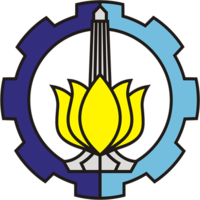RELIGIOUS RADICALISM, GLOBAL TERRORISM AND ISLAMIC CHALLENGES IN CONTEMPORARY INDONESIA
Abstract
Discussing the radicalism of religion and global terrorism is a global challenge that is now a worldwide concern, including for the Islamic community in Indonesia. Research in this paper with an analytical descriptive approach using the documentative method. The general purpose of this research is to understand the root causes of terrorism and religious radicalism in Indonesia? What is the solution of Islam to overcome the problem of religious radicalism and global terrorism? The results show: first, the historical roots of global terrorism and religious radicalism is a very complex portrait of social, political, and economic history. Also, the complexity of local, regional and global problems are interconnected with one another. Second, the Islamic solution to overcome this problem with the Islamic approach of peace for all (rahmatan lil alamin) which prioritizes the path of dialogue and world peace.
Keywords
Full Text:
PDFReferences
Abdurrahman, Moeslim. (2003). Islam sebagai Kritik Sosial. Jakarta: Erlangga.
Ali, Muhamad. (2016). Islam and Colonialism: Becoming Modern in Indonesia and Malaya. Edinburgh: Edinburgh University Press
Amstrong, Karen. (1991). Holy War: The Crusades and Their Impact on Today’s World. New York: Anchor Books.
Anwar, Dewi Fortuna. (2005). Violent Internal Conflict in Asia Pacific. Jakarta: Yayasan Obor dan LIPI.
Azra, Azyumardi. (2002). Konflik Baru Antar-Peradaban: Globalisasi, Radikalisme & Pluralitas. Jakarta: Raja Grafindo Persada.
Baasyir, Abu Umar. (2007). Teroris Melawan Teroris. Yogyakarta: Mawazin.
Barker, Chris. (2004). Cultural Studies: Teori dan Praktik. Yogyakarta: Kreasi Wacana.
Beilharz, Peter. (2005). Teori-Teori Sosial. Yogyakarta: Pustaka Pelajar.
Bergen, Peter L. (2001). Holy War, Inside the Secret World of Osama bin Laden, Inc. London: Weidenfeld & Nicolson.
Brokers, Mathias. (2003). Konspirasi, Teori-Teori Konspirasi dan Rahasia 11-9. Jakarta: Ina Publikatama.
Casanova, Jose. (1994). Public Religions in the Modern World. Chicago: the University of Chicago Press.
Clarke, Peter. (2006). New Religions in Global Perspective. New York: Routledge.
Dahlan, Muhidin. (2000). Sosialisme Religius; Suatu Jalan Keempat?. Yogyakarta: Kreasi Wacana.
Daniel, Norman. (1993). Islam and the West: The Making of an Image. Oxford: Oneworld.
Fathurahman, Oman. (2016). Shattariyah Silsilah in Aceh, Java, and the Lanao Area of Mindanao. Tokyo: ILCAA-TUFS.
Friedman, Jonathan. (1994). Cultural Identity and Global Process. California: Sage Publications.
Galtung, Johan. (2004). Studi Perdamaian. Surabaya: Pustaka Eureka.
Gunawan, Jamil. (2005). Desentralisasi, Globalisasi dan Demokrasi Lokal. Jakarta: LP3ES.
Habermas, Jurgen. (1970). Toward a Rational Society. Boston: Beacon Press.
Hasan, Noorhaidi. (2008). Laskar Jihad: Islam, Militansi, dan Pencarian Identitas di Indonesia Pasca-Orde Baru. Jakarta: Pustaka LP3ES.
Hasan, Noorhaidi. (2016). Public Islam in Indonesia: Piety, Politics and Identity. Amsterdam: Amsterdam University Press.
Hefner, Robert W. dan Patricia Horvatich. (2001). Islam di Era Negara-Bangsa. Yogyakarta: Tiara Wacana.
Held, David. (2004). Demokrasi dan Tantangan Global. Yogyakarta: Pustaka Pelajar.
Hendropriyono, A.M. (2009). Terorisme, Fundamentalis, Kristen, Yahudi, Islam. Jakarta: Buku Kompas.
Hoesterey, James Bourk. (2015). Rebranding Islam: Piety, Prosperity and a Self-Help Guru. USA: Stanford University Press,
Jackson, Robert. (2004). Rethinking Religious Education and Plurality: issues in diversity and pedagogy. New York: Routledge Falmer.
Kersten, Carool. (2017). A History of Islam in Indonesia. Edinburgh: Edinburgh University Press.
Kivisto, Peter. (2002). Multiculturalism in a Global Society. USA: Blackwell Publishers.
Latif, Yudi. (2005). Intelegensia Muslim dan Kuasa. Bandung: Mizan.
Mahbubani, Kishore. (2005). Bisakah Orang Asia Berpikir?. Jakarta: Teraju.
Mahfud, Choirul. (2016). Pendidikan Multikultural. Yogyakarta: Pustaka Pelajar.
Mubarak, M. Zaki. (2007). Genealogi Islam Radikal Di Indonesia: Gerakan, Pemikiran Dan Prospek Demokrasi. Jakarta: Pustaka LP3ES Indonesia.
Muhibbin, Zainul. Korelasi Antara Kecenderungan Teologi Dengan Opini Etos Kerja, Jurnal Sosial Humaniora, Vol.1 No.2, November 2008, 128-141
Parekh, Bhikku. (2000). Rethinking Multiculturalism. New York: Palgrave.
Pepinsky, Thomas B. Liddle, R. William and Muzani, Saiful. (2018). Piety and Public Opinion: Understanding Indonesian Islam. USA: Oxford University Press.
Purnomo, Agung. (2009). Ideologi Kekerasan: Argumentasi Teologis-Sosial Radikalisme Islam. Yogyakarta: Pustaka Pelajar.
Schmid, Alex. (1994). Political Terrorism: A Reaserch Guide. USA: Trans Action Books.
Shihab, Alwi. (1999). Islam Inklusif. Bandung: Mizan.
Suarmini, Ni Wayan, Ni Gusti Made Rai, Marsudi, Karakter Anak Dalam Keluarga Sebagai Ketahanan Sosial Budaya Bangsa, Jurnal Sosial Humaniora, Vol 9 No.1, Juni 2016, 78-95.
Turmudi, Endang. (2004). Perselingkuhan Kiai dan Kekuasaan. Yogyakarta: LKIS.
Woodward, Mark R. (2004). Islam Jawa; Kesalehan Normatif VS Kebatinan. Yogyakarta: LKIS.
DOI: http://dx.doi.org/10.12962%2Fj24433527.v11i1.3550
Refbacks
- There are currently no refbacks.
This work is licensed under a Creative Commons Attribution 4.0 International License.






